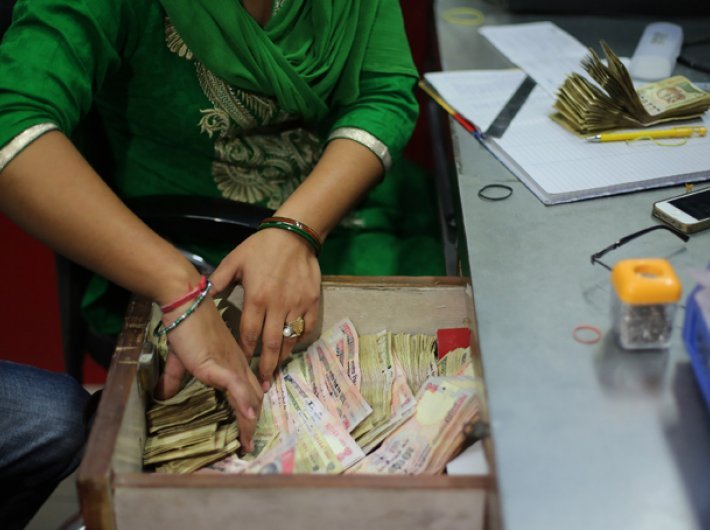The impact moderated significantly in January and dissipated by and large by mid-February 2017, reflecting an accelerated pace of remonetisation.
Overall, the assessment is that the impact of demonetisation on the real economy has been transient, given the information available so far, said a Reserve Bank of India paper.
The paper “Macroeconomic Impact of Demonetisation - A Preliminary Assessment” said suggests that demonetisation impacted various sectors of the economy; however, the adverse impact, in general, was short-lived as it was felt mainly in November and December 2016. The impact moderated significantly in January and dissipated by and large by mid-February 2017, reflecting an accelerated pace of remonetisation.
The impact on GVA growth, albeit modest, was felt in Q3 of 2016-17. The organised sector remained largely resilient. Gross value added (GVA) is the measure of the value of goods and services produced in an area, industry or sector of an economy.
The latest CSO estimates suggest that the impact of demonetisation on GVA growth in Q3 of 2016-17 was felt mostly in real estate and construction, but because of stronger growth in agriculture, manufacturing, electricity, and mining, the overall impact on GVA growth was modest. With remonetisation progressing at a fast pace, the adverse impact is expected to have reversed from the latter part of Q4 of 2016-17. GVA growth is estimated to recover significantly in 2017-18.
The decline in food inflation during November 2016 to January 2017 was the combined effect of record pulses production, large winter arrivals of vegetables and some fire sales due to decline in demand following cash squeeze. However, inflation excluding vegetables moderated only marginally. Also, inflation excluding food and fuel remained sticky. The headline inflation outlook in the near term will hinge on how food inflation evolves.
With the return of scrapped currency notes, currency in circulation declined and deposits with banks surged. This expanded the balance sheet of banks and created large surplus liquidity in the system, which was managed by the RBI mostly through a mix of reverse repo and MSS securities. Reflecting this, the share of ‘investment in government securities’ on the asset side of banks’ balance sheet increased significantly. Large surplus liquidity led to a significant improvement in monetary policy transmission as reflected in a significant decline in deposit and lending interest rates.
The paper goes on to say that Jan Dhan accounts increased by 23.3 million post demonetisation, while deposits under Jan Dhan accounts increased by ₹ 187 billion (41 percent).
Reflecting the expected slowdown in sales and earnings, share prices of cash intensive sectors such as automobiles, FMCG, consumer durables and real estate declined sharply in November-December 2016. Most of these sectors have more than recovered the lost ground subsequently. In fact, the consumer durable sector outperformed the overall increase in the stock market post-demonetisation. The impact on the forex market was transitory, the RBI paper said.
Demonetisation has impacted some segments of the export sector such as readymade garments, and gems and jewellery. The impact, however, was transitory. Imports of gold increased sharply in November, but moderated in December.
There has been a significant improvement in the use of digital modes of payments post demonetisation, although their base is still small.
Overall, demonetisation has had some negative macroeconomic impact, which, however, has been transient as remonetisation has moved at an accelerated pace in last twelve weeks. More importantly, demonetisation is expected to have a positive impact over the medium to long-term. In particular, there is expected to be greater formalisation of the economy with increased use of digital payments. The reduced use of cash will also lead to greater intermediation by the formal financial sector of the economy, which should, inter alia, help improve monetary transmission.
